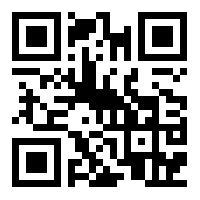As per WHO, “Noncommunicable diseases (NCDs) or chronic diseases kill 41 million (M) people each year, which is equivalent to 71% of all deaths globally.” Of these, cardiovascular diseases account for 17.9 M, followed by cancers (9.0 M), respiratory diseases (3.9 M), and diabetes (1.6 M).
Common Lifestyle Diseases in India
Closer home, few of the prevalent lifestyle maladies are obesity, Type II diabetes, hypertension, heart (heart attack and stroke) and liver diseases (cirrhosis), lung diseases (COPD and asthma) and cancer (oral, breast and cervical cancer).
Many of these diseases like fatigue, obesity, hypertension, diabetes, and heart disease are being triggered by the New World Syndrome (NWS), which is a mix of disorders caused due to poor lifestyle and dietary habits. This is even more prominent among the urban working class, especially the white-collar corporate employees who spend considerable time in commute and are considerably exposed to air pollutants. In addition, they spend an excessive amount of their work time mostly confined to a seating position. Some of them also lean towards an excessive intake of unhealthy and fatty food as well as alcohol, tobacco, etc. which only compounds the risk factors.
As per a Centre for Science and Environment (CSE) report “Body Burden: Lifestyle Diseases” (2017), there are 7 major health problems in India - obesity, mental health, cancer, heart and hormonal disorders, respiratory ailments, and food allergies.
It has been reported that NCDs are responsible for more than 61% of the deaths in the country (ICMR India State-Level Disease Burden Study report “India: Health of the Nation’s States”, 2016) with air pollution alone being the causal factor for 30% of all premature deaths (CSE report “Body Burden: Lifestyle Diseases”, 2017).
According to the National Family Health Survey (NFHS), India has the second-highest obese population globally with 155 M and the largest number of Type II diabetics worldwide at 40.9 M. The country also has the highest number of heart patients in the world with more than 50 M people suffering from related issues. 100 M Indians suffer from high blood pressure and there are over 2 M registered cancer patients. Per the NFHS survey, between the ages of 15-49, 11% of women (1 in 10) and 15% of men (1 in 7) are hypertensive (2015-16).
These figures are highly alarming. Even otherwise healthy people can experience serious health impact from faulty lifestyle practices. Immediate and controlled measures on a wide-scale are needed to not only create awareness but also to prevent and curb their devastating effect.
Also read: 5 Must-knows before planning to invest in preventive healthcare for your company
Factors leading to Lifestyle Diseases
Inadequate dietary intake, sedentary lifestyles, smoking, excessive drinking, poor sleeping habits, air pollution, stress, etc. are the early triggers for NCDs. Foods that are high in salt, sugar, fat and low in nutrition further aggravate the conditions. This is even more prevalent and widely noted in urban environments where there is a large population of corporate employees following a sedentary lifestyle.
To make matters worse, some of the early lifestyle disorders can be a precursor to more chronic and morbid maladies like cancer.
As per the recent CSE report, a crucial link has also been established between health (including physical and mental health) and the environment.
Air pollution is an environmental disease, which by itself can have both short-term and long-term repercussions on a person’s well-being. Some recent studies have indicated that it can lead to irritations, dizziness, respiratory infections, asthma, COPD, pneumonia, and neuro-behavioral disorders as well as more fatal illnesses like cardiovascular diseases, leukemia, pulmonary cancer, birth, and immune system defects. All those living and working in a polluted environment (for example, low-to-high exposure to external smog and indoor pollutants in buildings) are susceptible. People residing in cities and towns where there is a higher level of air pollution are at increased risk.
One of the important methods for counteracting these adverse health effects is to increase awareness and reduce the perils associated with them.
To quote Markus Moding, CEO and Co-Founder, DocOnline, “Strong measures have to be taken to strengthen and sustain the current health systems to educate people and mitigate the ill-effects of these lifestyle-related health conditions. As a nation, it is critical to move away from a ‘Sick-care’ and last-minute approach to a more ‘Wellness’ and preventive thrust. This entails a fundamental shift from a “state of being” to a “state of living a healthy lifestyle”.
It is only possible when there are a clear orientation and concentrated focus on inculcating an active and healthy lifestyle among the public. Corporate employees veer towards the consumption of a poor diet and also lack regular physical activity, which makes them even more susceptible to lifestyle diseases.”
“Prevention and early diagnosis can be the vital keys in the creation of optimal wellness-promoting environments. Telemedicine offers an easy and viable option for patients to seek primary and specialist healthcare consultations in a timely, cost-effective and efficient manner while retaining confidentiality and approachability,” he further added.
Focused Interventions
Multi-pronged and widespread actions are needed to address these issues.
WHO’s 2030 Agenda for Sustainable Development recognizes NCDs as a major challenge for sustainable development with an overarching aim to reduce by 1/3rd premature mortality from NCDs through prevention and treatment. Involving various nations, the organization has a target of 25% relative reduction in premature mortality from cardiovascular problems, cancer, diabetes or chronic respiratory infirmities by 2025.
Government of India (GoI) is also implementing a National Programme for Prevention and Control of Cancer, Diabetes, Cardiovascular Diseases and Stroke (NPCDCS) under the National Health Mission (NHM). In 2017-18, as part of comprehensive primary healthcare, they have also introduced population-level drives for the prevention, control, and screening of common NCDs in over 150 districts of the country.
Online healthcare services are increasingly gaining ground in supporting similar intercessions by both the public and private sectors. Telemedicine provides easy and universal access to better healthcare for patients. At the touch of a few buttons, they can be connected to medical specialists who can help in the early screening and diagnosis of their medical problems. While it is imperative to switch to and maintain a healthier lifestyle, it is equally necessary to be able to quickly approach the right medicare services when needed.
FAQ
Telemedicine is the exchange of medical information from one location to another using real-time electronic communication (phone, internet) aimed to improve patient’s health by providing services such as health assessments or consultations.
It’s affordable, easily accessible, improves the quality of care and better patient management.
The rapid advancement in technology will help to achieve the goals of providing accessible, quality & cost-effective health services to everyone.
Daily physical activity, healthy diet, weight management, avoid smoking, and reduce alcohol consumption.













